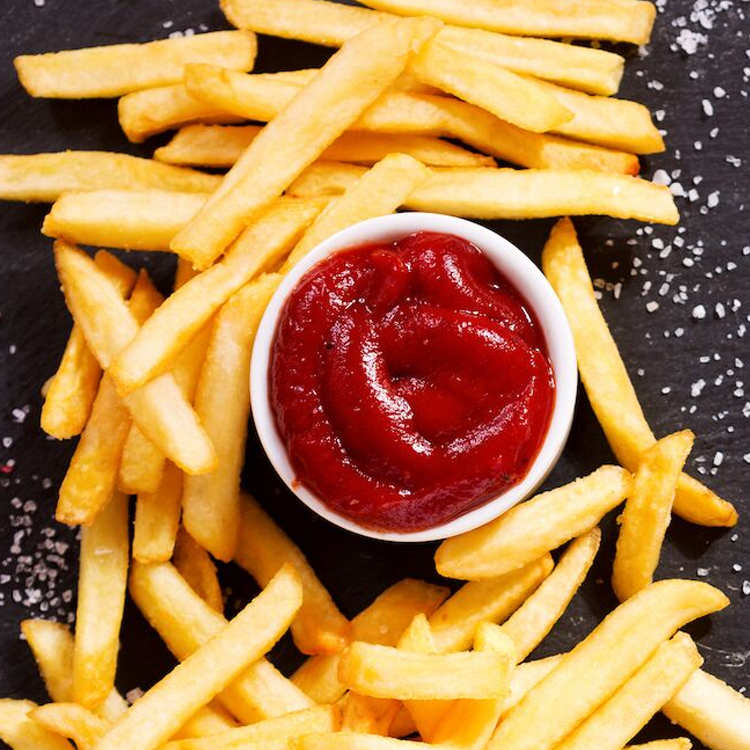
Polyphenols: The Fountain of Youth for Your Body and Mind
Step into the fascinating world of polyphenols, nature’s mystifying molecules that hold the key to vitality. In this article, you will discover what polyphenols are, their benefits, and some interesting facts that you probably didn’t hear before.
Allow us to reveal the truth about polyphenols.
What Are Polyphenols?
Polyphenols, a diverse group of compounds, constitute a remarkable array of bioactive molecules found abundantly in various plant species. Comprising an astonishing 8,000 different types, polyphenols exhibit immense structural variability and biological significance. These compounds can broadly be categorized into four major groups: flavonoids, phenolic acids, stilbenes, and lignans.
With their unique chemical structure, these compounds possess remarkable anti-inflammatory and antioxidant properties that renew cells. Antioxidants defend cells against harmful substances known as free radicals. The potential of polyphenols for preventing and treating age-related diseases and conditions is currently under research.
To help you create a broader picture of these powerful compounds, we first want to resolve common misconceptions.
What Are Not Polyphenols:
Although they are a broad class of compounds with numerous health benefits, polyphenols are frequently mistaken for other nutrients. Unlike carbohydrates, proteins, and lipids, which are primary macronutrients essential for energy production and cell function, polyphenols do not serve as direct sources of energy. They also differ from vitamins and minerals, which are essential micronutrients. While vitamins and minerals play vital roles in various physiological processes, polyphenols exert their effects through complex interactions with the human body’s biological systems, acting as antioxidants and modulators of genetic expression.
Now that we’re familiar with these intriguing compounds, let’s explore how they can improve our health.
Polyphenols Health Benefits
There is a wide range of polyphenols health benefits due to their potent antioxidant and anti-inflammatory effects on human health.
Polyphenols and Aging
The effect that has recently attracted the most attention is related to their anti-aging properties. As we age, our cells face damage from free radicals. Their action leads to the slowing down of cellular processes and visible signs of aging like fine lines, wrinkles, and reduced skin elasticity. Polyphenols neutralize free radicals, protecting cells from oxidative stress and supporting optimal functionality. These compounds play a significant role in maintaining youthful appearance, vitality, and overall well-being.
Blood Sugar Regulation
Polyphenols may enhance insulin sensitivity and reduce insulin resistance, helping cells absorb and utilize glucose more efficiently. Certain polyphenols inhibit carbohydrate-digesting enzymes, slowing down carbohydrates breakdown into glucose. This mechanism prevents rapid spikes in blood sugar levels after meals. It is important to note that rapid blood sugar spikes can lead to increased appetite and weight gain. These compounds promote glucose uptake by cells, facilitating glucose transport from the bloodstream into cells, where glucose is converted into energy. These findings imply that polyphenols could help control insulin resistance and diabetes.
Cardiovascular Health
As we already mentioned, the potent antioxidant properties of polyphenols protect cells from oxidative stress. In this way, they may lower the risk of atherosclerosis and other cardiovascular diseases. Polyphenols may also improve endothelial function, which contributes to proper blood flow. Some polyphenols have anti-inflammatory properties that help reduce inflammation, which is linked to cardiovascular disease. Certain polyphenols may aid in the reduction of blood pressure and cholesterol levels, thereby improving heart health.
Anti-Inflammatory Effects
The key player in inflammation in the body, oxidative stress, can lead to chronic inflammation processes. Chronic inflammation is related to the risk of developing cardiovascular disease, cancer, and autoimmune diseases. On the other hand, polyphenols act as inflammation inhibitors and can contribute to the slowing of inflammatory processes.
Gut Balance
These compounds play a vital role in maintaining a balanced gut microbiome. When we eat polyphenol-rich foods, these compounds travel through our digestive system, reaching the colon, where they interact with beneficial bacteria residing there. They act as prebiotics, helping the growth of beneficial gut bacteria such as Bifidobacteria, Escherichia coli, and Lactobacillus. These friendly bacteria ferment polyphenols, producing metabolites like fatty acids that further contribute to gut health.
Cognitive Potential
In addition to protecting heart, skin, and blood vessel cells, the antioxidant properties of polyphenols also protect brain cells. Most neurons do not have the ability to regenerate, so in this aspect, their role is invaluable. Polyphenols increase blood flow in brain blood vessels and slow down aging-related neurodegeneration. By improving synaptic plasticity, they help improve learning processes and memory.
Skin Quality
Polyphenols also promote collagen synthesis, maintaining the skin’s elasticity, firmness, and supple texture. Their anti-inflammatory properties help to reduce redness and skin irritation, soothe sensitive skin, and calm acne and eczema. By strengthening the skin barrier, they protect the skin against external aggressors, such as UV rays and pollution, leaving it resilient and glowing.
Weight Control
The anti-obesity effects of polyphenols encompass various mechanisms. Firstly, they stimulate thermogenesis (the production of heat in the body). This process increases energy consumption. Polyphenols inhibit the activity of digestive enzymes such as amylase, glucosidase, and lipase. Thus, they impede the absorption of carbohydrates and fats, leading to reduced calorie intake. They also inhibit the growth of fat cells, known as adipocytes. This inhibition limits the expansion of adipose tissue. Polyphenols also increase lipolysis and contribute to weight loss by releasing stored energy. Lastly, they suppress appetite, thus reducing food intake. All of those processes lead to faster fat oxidation and accelerate weight loss.
Liver Support
The liver is an organ that metabolizes toxic substances, like alcohol and remedies, and thereby cleanses the body from unnecessary substances. However, metabolic processes can damage the liver over time. The beneficial effects of polyphenols on liver health are related to their anti-inflammatory and antioxidant abilities. A large number of polyphenols influence lipid metabolism in the liver and stimulate the production of enzymes for toxins breakdown.
Eye Health
Due to their antioxidant properties, these powerful substances prevent eye damage caused by radiation. They affect age-related changes, especially cataracts and macular degeneration. Certain polyphenols, such as those found in berries and grapes, enhance blood flow to the eyes. This supports retinal function and nourishes the ocular tissue.
When it comes to health benefits, it’s critical to consider factors such as polyphenol type and source, as well as individual differences in metabolism and health status. A diet rich in fruits, vegetables, nuts, seeds, and other superfoods may help you increase your daily polyphenol intake.
The Final Word
Although polyphenols are still under scientific research, certain health benefits are undeniable. What is unquestionably true is that polyphenols are attracting attention, both among scientists and the public. While we eagerly await more scientific findings, why not boost our daily intake with Vana Health food supplement?
This exceptional dietary supplement, rich in polyphenols, can help you achieve your health goals. Say goodbye to aging signs, low energy, excess water, poor focus, digestion issues, and restless nights. With Vana Health, your well-being is guaranteed! Experience the transformative power of this formula that balances your entire body, day and night.
Frequently Asked Questions
What are the 4 types of polyphenols?
The four classes of polyphenols are:
- Flavonoids – The largest and most diverse group of polyphenols. They are divided into subgroups, such as flavones, flavonols, flavanones, flavan-3-ols, anthocyanins, and isoflavones.
- Phenolic Acids – Phenolic acids include compounds such as caffeic acid, ferulic acid, and gallic acid. They could be found in whole grains, fruits, and vegetables.
- Stilbenes – They occur in many plant species. The most famous one is resveratrol, often associated with red wine, cocoa, cranberries, and grapes.
- Lignans – Lignans are found in various seeds and whole grains. Flaxseeds are one of the best-known sources of these compounds.
What drink has polyphenols?
Several beverages contain polyphenols, but the most famous are:
- Red wine, which contains resveratrol
- Green tea, thanks to catechins and quercetin
- Cocoa, which contains flavanols
- Coffee – coffee beans contain chlorogenic acids
- Black tea – contains theaflavins and thearubigins.
Is curcumin a polyphenol?
Yes, curcumin is a polyphenol. It is a naturally occurring compound found in turmeric, a spice commonly used in cooking and traditional medicine. Curcumin belongs to the group of polyphenols known as curcuminoids. It is responsible for the vibrant yellow color of turmeric and has been extensively studied for its health benefits. Due to its beneficial effects, curcumin has gained significant attention as a dietary supplement and natural remedy for various health conditions.
What destroys polyphenols?
Thermal processing of food destroys polyphenols. Cooking, baking, and frying food decrease their concentration. In addition to high temperatures, direct UV radiation leads to the degradation of polyphenols. Likewise, exposure to oxygen can cause them to oxidize and decompose. To preserve polyphenol health benefits, consume as much fresh or minimally processed food as possible.


